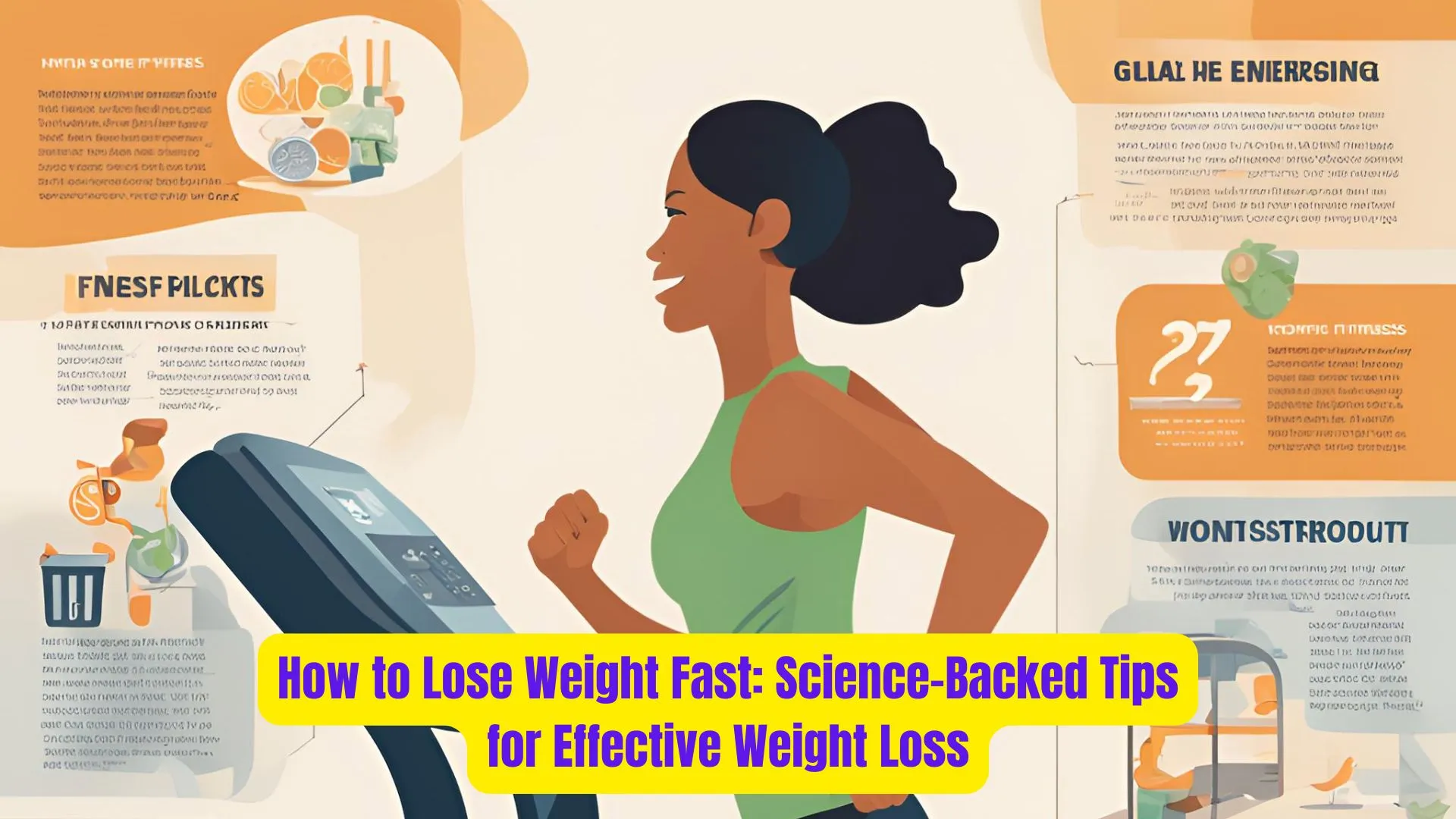How to Lose Weight Fast: Science-Backed Tips for Effective Weight Loss


Losing weight quickly and effectively is a goal for many people looking to improve their health and fitness. While many diets, supplements, and meal replacement plans promise fast results, only a handful are truly backed by science. In this comprehensive guide, we will walk through some scientifically-proven strategies on how to lose weight fast that focus on sustainable, healthy weight loss and long-term lifestyle changes.
What Are the Basics of Losing Weight?
To understand how to lose weight fast, it’s essential to know the fundamentals of weight loss. At its core, weight loss happens when we consume fewer calories than we expend. This concept is often referred to as a caloric deficit. While the process may sound straightforward, various factors can influence weight loss speed and effectiveness, including metabolism, dietary choices, activity level, and genetic predispositions.
1. Incorporate Intermittent Fasting for Faster Weight Loss
One popular method to accelerate weight loss is intermittent fasting. This strategy involves cycling between periods of eating and fasting, which can boost metabolism and reduce overall calorie intake.
Benefits of Intermittent Fasting
Research has shown that intermittent fasting can increase fat burn, help regulate insulin levels, and improve metabolic health. The method is especially effective when combined with a balanced diet and regular exercise. Common forms of intermittent fasting include:
- 16:8 Method: Fasting for 16 hours, followed by an 8-hour eating window.
- 5:2 Diet: Eating normally five days a week, with restricted calorie intake on two non-consecutive days.
This approach allows the body to access stored fat for energy, helping lose weight fast while preserving lean muscle mass.
2. Emphasize Protein-Rich Diets
Adding more protein to your diet can significantly support weight loss efforts. Protein has been shown to increase feelings of fullness, reduce hunger, and boost metabolism. By including more protein-rich foods like lean meats, legumes, eggs, and dairy in your meals, you may feel less inclined to snack, thereby reducing your overall calorie intake.
How Protein Aids in Weight Loss
A high-protein diet helps you lose weight fast by increasing thermogenesis, which is the body’s process of burning calories to digest food. Protein can increase metabolism by 15–30%, compared to 5–10% for carbs and 0–3% for fats. This thermogenic effect can make it easier to maintain a calorie deficit without feeling deprived.
3. Choose Whole Foods Over Processed Options
Whole foods, such as fruits, vegetables, lean proteins, and whole grains, contain essential nutrients and fiber that support healthy digestion and keep you full longer. Unlike processed foods, which are often high in sugar, salt, and unhealthy fats, whole foods aid in losing belly fat and help regulate blood sugar levels.
Why Whole Foods Help in Weight Management
Whole foods provide sustained energy and prevent the blood sugar spikes associated with processed snacks. By focusing on nutrient-dense foods, you’ll naturally consume fewer calories, helping you lose weight fast without the need for extreme dieting.
4. Reduce Refined Sugar and Carbohydrate Intake
Refined sugars and processed carbohydrates are some of the biggest culprits behind weight gain. Cutting back on sugary beverages, desserts, and snacks can have a profound impact on how fast you lose weight.
Effects of Sugar on Weight Loss
Sugary foods and drinks can lead to weight gain by rapidly increasing blood glucose and insulin levels. This often results in fat storage, especially around the belly area. To curb cravings and control caloric intake, opt for naturally sweet foods like fruits, which contain fiber to slow sugar absorption, rather than sugary treats.
5. Prioritize Quality Sleep for Optimal Weight Management
Sleep quality and duration are often overlooked in weight loss strategies, but they play a crucial role. Lack of sleep disrupts hormones that regulate hunger and satiety, leading to increased appetite and cravings for high-calorie foods.
How Sleep Affects Weight Loss
Studies indicate that sleep-deprived individuals are more likely to consume higher-calorie foods and experience weight gain over time. To enhance weight loss efforts, aim for 7-9 hours of quality sleep per night.
6. Exercise Regularly with a Focus on Cardio and Strength Training
Physical activity is one of the most effective ways to boost weight loss. Combining cardio exercises like running, cycling, or swimming with strength training can help build muscle mass and increase metabolism.
Benefits of Cardio and Strength Training
- Cardio: Burns calories immediately and improves cardiovascular health.
- Strength Training: Increases muscle mass, which boosts resting metabolism and burns more calories even at rest.
Incorporating a mix of cardio and strength exercises 3-5 times a week can expedite weight loss and improve body composition.
7. Stay Hydrated for Better Metabolic Function
Drinking water throughout the day aids digestion, curbs hunger, and helps flush out toxins. Dehydration often mimics hunger, leading people to eat more when they are actually just thirsty.
Water’s Role in Weight Loss
Drinking water before meals can reduce calorie intake, helping you achieve a caloric deficit more easily. Additionally, replacing high-calorie beverages with water cuts down on empty calories.
8. Manage Stress to Prevent Emotional Eating
Chronic stress can lead to emotional eating and cravings for comfort foods high in calories and sugar. Reducing stress through activities like yoga, meditation, or deep breathing can help regulate hormones that contribute to fat storage.
How Stress Impacts Weight Loss
Stress triggers cortisol production, which can increase appetite and promote abdominal fat storage. By managing stress effectively, you can avoid the urge to snack excessively and support faster weight loss.
Here are some social media platforms where you can follow content related to how to lose weight fast for additional tips, motivation, and expert advice:
- Instagram: Follow popular accounts like @healthline or @selfmagazine for science-backed tips, meal ideas, and fitness routines focused on weight loss.
- Facebook: Join communities like Weight Loss Tips & Tricks or Healthy Weight Loss where members share their weight loss journeys, advice, and support.
- Twitter: Follow health and wellness experts like @myfitnesspal and @healthmagazine for quick tips and the latest research on healthy weight loss.
- Pinterest: Search for boards like Weight Loss Tips and Healthy Eating for Weight Loss for easy-to-save recipes and workout plans tailored to losing weight fast.




